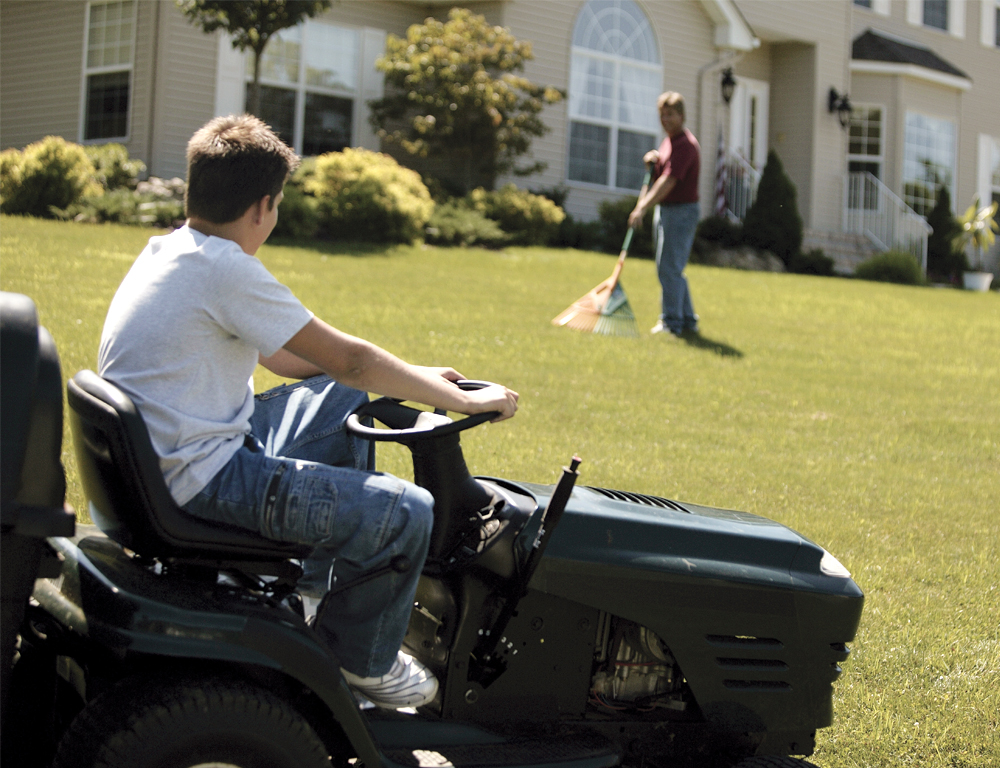The Medical Minute: Lawn mower injuries often prove severe

The buzz of lawn mowers signals the arrival of spring as much as singing birds and kids playing outside. Yet it's easy to forget that the machines can cause serious damage if not used safely.
In 2015, lawn mowers were responsible for sending more than 68,000 adults and about 13,000 children to emergency departments nationwide.
“We need to remind people that these are dangerous machines, and the consequences are devastating,” said Mariano Garay, a fourth year medical student at Penn State College of Medicine.
Garay has studied the subject of lawn mower injuries in children and found that the number of injuries statewide has remained about the same during the past decade.
A 12-year study of 199 patients ages 18 and younger from 2002 through 2013 found that more than half of those who were admitted to a hospital with injuries from lawn mowers ended up having an amputation of some sort – usually in the lower extremities.
“The blade is so sharp and it is going so fast that body parts are no match for it,” said Amy Morgan, program manager for the Pediatric Trauma and Injury Prevention Program at Penn State Health Children’s Hospital.
The American Academy of Pediatrics (AAP) recommends that children age six and younger be kept indoors during mowing.
“The mower is loud and the operator can't always see or hear a small child who may run out in front or sneak up behind,” Morgan said. “Children that young assume that adults are looking out for them, but adults who are mowing are focused on the task at-hand. It's a set-up for injury.”
Young children playing in the yard during mowing can also be injured by sticks, rocks and other projectiles spit out by the machines. Morgan recommends walking through the yard before mowing to make sure toys and all debris have been removed.
She also reminds parents and grandparents never to look at riding lawn mowers as recreational vehicles. “Never allow a child – or another adult for that matter – to ride on one with you,” she said. “We commonly see children with severe injuries from that.”
The AAP says children older than 12 should be able to use a walk-behind lawn mower safely, while teens age 16 and older should be able to safely operate a riding mower. Morgan said parents need to combine those recommendations with what they know about their child's coordination, maturity level and good judgment.
“In our suburban communities, a lawn mower is one of the biggest pieces of machinery around the home that a child could use,” Morgan said. “It's important that adults teach their children how to use it safely and supervise them until you feel they can handle the responsibility.”
General safety tips for both teens and adults include making sure the mower is turned completely off before trying to remove clogged grass from blades, as well as wearing sturdy shoes to mow rather than sandals or flip flops that can cause you to trip or become injured by debris spit from the mower.
“One of the things we can do is remind everyone operating these machines about the dangers they pose,” Garay said. “These injuries are preventable.”
The Medical Minute is a weekly health news feature produced by Penn State Health Milton S. Hershey Medical Center. Articles feature the expertise of faculty physicians and staff, and are designed to offer timely, relevant health information of interest to a broad audience.
If you're having trouble accessing this content, or would like it in another format, please email Penn State Health Marketing & Communications.
